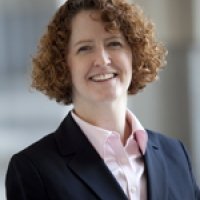Integrating Official and Crowdsourced Crisis Information
The Commons Lab of the Science and Technology Innovation Program welcomes Dr. Sophia Liu, USGS.
Crowdsourcing crisis information gathered via the Internet is not new to the U.S. Geological Survey (USGS). Since 1999, the USGS Earthquake Hazards Program has been generating Community Internet Intensity Maps (CIIMs) using geographic data submitted to the Did You Feel It? website. This open call to the public is a notable example of how USGS facilitates the sharing of critical crisis information by members of the public not only to provide valuable data for earthquake research at USGS, but also to provide immediate situational awareness for emergency management stakeholders. CIIM is one of the early instances of “crowdsourcing,” consciously developed long before the coining of this term by Jeff Howe in 2006.
New opportunities and challenges are emerging as members of the public use pervasive information and communication technologies, including social media and social networking sites (e.g., Twitter, Facebook, and user-generated maps), to help in the immediate aftermath of major disasters. The USGS Earthquake Hazards Program has already begun to investigate how to harness crisis data from the crowd via social media sites like Twitter to rapidly detect and characterize earthquake effects. However, as we increasingly have access to ever-growing streams of content online, how can crisis data from government agencies, satellite imagery companies, volunteer technical communities, disaster-affected populations, and the general public be integrated together to better facilitate emergency response, recovery, and mitigation efforts?
In this talk, Dr. Sophia B. Liu will discuss the opportunities and challenges with integrating official and crowdsourced crisis information based on the response to the 2010 Haiti earthquake and what has happened since this catastrophe, which was the tipping point for crowdsourcing and social media use in the crisis domain. Specifically, Dr. Liu will unpack the different interface challenges at the social, technological, organizational, and political levels. She will also discuss the meaning of "socially distributed curation" and its application to information management in the emergency domain.
About the Speaker
Sophia B. Liu, PhD is currently a Mendenhall Postdoctoral research fellow at the U.S. Geological Survey investigating crowdsourced geographic information around earthquakes. She works with Paul Earle at the National Earthquake Information Center in Golden, Colorado as well as Barbara Poore in Saint Petersburg, Florida through the National Geospatial Program and the Core Science Systems strategy. Specifically, Dr. Liu conducts research on the integration of official and crowdsourced geographic information pertaining to earthquakes. In May 2011, she received her PhD from University of Colorado, Boulder (CU) in the Technology, Media and Society interdisciplinary program at the Alliance for Technology, Learning and Society (ATLAS) Institute. In 2006, Dr. Liu was awarded a National Science Foundation Graduate Research Fellowship. Her graduate advisor was Professor Leysia Palen in the Department of Computer Science at CU directing Project EPIC (Empowering the Public with Information in Crisis) and the Connectivity Lab, where we conducted research in the emerging area of Crisis Informatics beginning in 2005 working at the intersection of social, technical, and informational aspects of crises and disasters. Her dissertation research focused on the use of social media pertaining to historically significant crises and the emergence of socially-distributed curatorial practices as a way of managing crisis information in the social media landscape. She has given numerous invited talks and guest lectures on the emerging use of social media during mass emergencies and historic disasters. https://profile.usgs.gov/sophialiu
Speakers

Co-Executive Director of the NSF South Big Data Innovation Hub
Hosted By

Science and Technology Innovation Program
The Science and Technology Innovation Program (STIP) serves as the bridge between technologists, policymakers, industry, and global stakeholders. Read more
